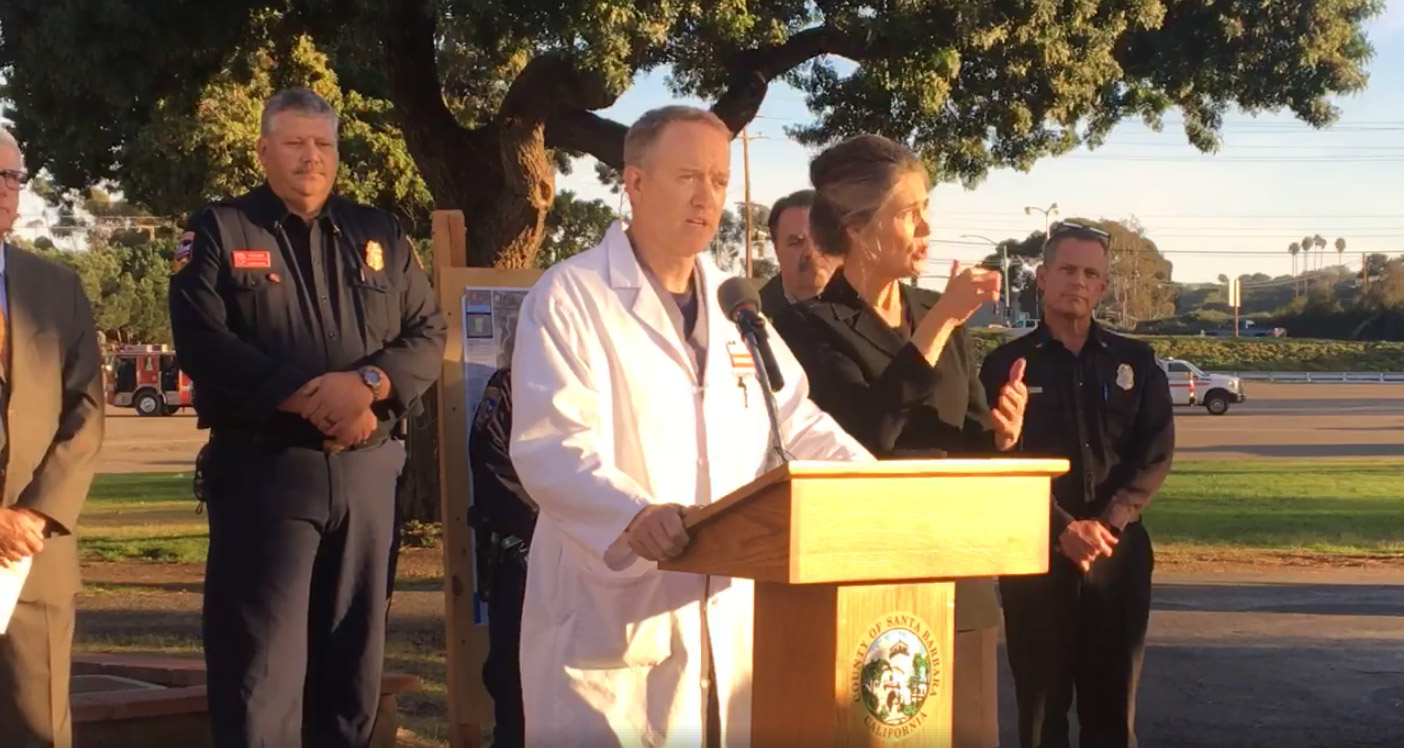Emergency Doctor Urges Patience after Montecito Disaster
Cottage Medical Director Dr. Brett Wilson Warns Impacts Will Be Significant and Long-Lasting
Even after all the mud’s been washed away and the waters have receded, impacts of Montecito’s landslide will be felt for a long time to come. That’s the assessment of Dr. Brett Wilson, medical director for Santa Barbara Cottage Hospital’s Emergency Department. He might know. Wilson, a graduate of Dos Pueblos High School in 1991, got his medical degree from Tulane University in New Orleans. When Hurricane Katrina hit that city in 2005, Wilson was on call. In recent weeks, Wilson and Cottage’s emergency medical staff have been juggling a major flu outbreak — eight dead in two weeks — with the massive demands imposed by the Montecito mud flood. Twenty-eight admissions hardly tell the story. Nor does the clinically detached term “blunt force trauma,” the medical description for what ails those admitted. One of the longer-term admittees reportedly suffered a broken back, massive abrasions, and lost large chunks of muscle gouged out of his back.
With the first wave over, Wilson is bracing for new arrivals, people checking themselves in for seemingly minor cuts and wounds that have since become infected. Those issues, he said, are more obvious and can be fixed. Less obvious is the long-term psychic toll the disaster will inflict. “People will get a little more irritable,” he warned. “They will have less patience. We’ll see a lot more self-medicating. Some people will go into the bar for a drink, and that one drink will turn into three months.” In that situation, he said, friends and loved ones need to be paying attention. “They’ll need to have the courage to go give that person a hug but to tell them what they’re doing.”
The provocation, Wilson said, will be intense. Recovery will be anything but fast. Governmental red tape and insurance-company hassles will be staggering. Grief and exasperation will be kicking in. It will take Montecito a long time to look like Montecito again. Wilson’s own sister lost her house in the recent storm. “She didn’t take anything with her,” he said. “Like everyone else, there were dishes still in her sink. This is going to be a long slow process for a lot of reasons.”

Wilson said emergency medical personnel are feeling the toll. “This is a small town. We all know people who are getting wheeled in here. It’s not like we’re treating Patient A or B,” he said. “It’s personal.” His staff holds regular debriefings. “We all get together and ask each other ‘Are you okay?”
A lot of the times, however, it’s not that simple. “You can’t just say, ‘Tell me your story.’ It doesn’t come out that way. It often comes out when you ask about something else completely. But when it does, you need to be able to listen. Otherwise, it just gets all bottled up. People start to get real quiet and withdrawn. That’s not healthy.”
Wilson also discouraged close friends and intimates from saying, “’Tell me what you need’” or asking, “‘What can I do for you?’” Instead, he urged, “Invite them out to lunch or dinner. Just be there.”
Everyone will respond differently, he said. Wilson said he still gets the heebie-jeebies at the sound of helicopter from his days during Katrina. “I got to the point I could tell you exactly what kind of helicopter it was by the sound of its motor.” For others, it could be the sound of rain, the smell of mud. During the first week, Wilson said most of the Montecito victims were airlifted to the Goleta hospital rather than downtown even though downtown has a helipad on the roof. “Military helicopters are too heavy for the roof,” he explained.



